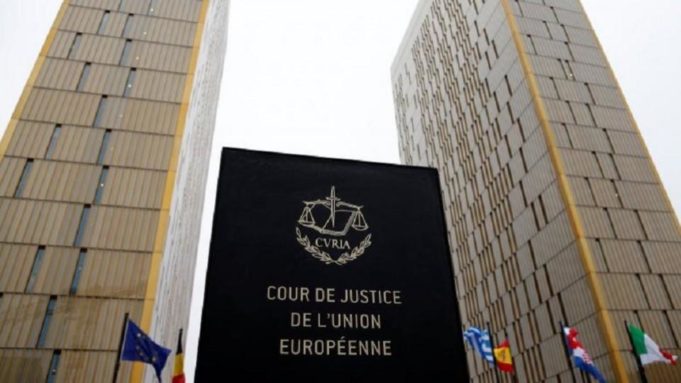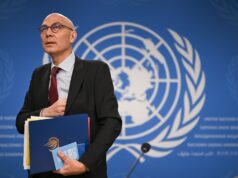A big achievement by the Tamil lawyers in the European Court of Justice
On last Tuesday the 24th April 2018, the European Court of Justice (ECJ) ruled that the third country nationals who had been tortured in the past by the authorities of their country of origin would be eligible for asylum known as subsidiary protection when it was justified that there could be a real risk of them being intentionally deprived of appropriate care for their physical and mental after-effects of that torture if they were returned. The European Court of Justice ruled as such in a case advanced by Barrister Arun Gananathan and legal advisor Geeth Kulasegaram. The case involves an Eelam Tamil.
The European Court of Justice admits, If a person seeking protection under the European Convention on Human Rights was found tortured by the authorities of his country of origin in the past and whose physical and psychological health could seriously deteriorate leading to a serious risk of committing suicide on account of the trauma resulting from the past torture would be eligible for subsidiary protection even though he would no longer face a risk of being tortured again if returned to that country. However, it further clarifies that it was a matter for the national courts of the European member states to determine if there could be a real risk that the appropriate medical care for the physical and mental after-effects of that torture would be withheld in his country of origin.
Case Background
The petitioner of this case is an Eelam Tamil who was tortured by the Sri Lankan authorities in the past as he had been a member of the Liberation Tigers of Tamil Eelam. The petitioner, for his own safety, identified in ECR documents as “MP” instead of his real name arrived in Britain in 2005 as a student. He applied for political asylum in 2009 since he couldn’t return to Sri Lanka for the reason that there was a real threat to his life.
Moreover he mentioned in his application that he was suffering from Post-traumatic Stress Disorder and Depression due to the tortures he underwent in Sri Lanka.
 Though MP’s asylum application was initially rejected, owing to the hard work of Barrister Arun Gananathan, his case was chosen as an example case and accepted as one of the country guidance cases for Sri Lanka. Subsequently, several appeal hearings brought the case before Britain’s Supreme Court. His lawyers argued in the Supreme Court that the British government must make a new policy for the grant of asylum for those who were psychologically victimized like him due to the tortures.
Though MP’s asylum application was initially rejected, owing to the hard work of Barrister Arun Gananathan, his case was chosen as an example case and accepted as one of the country guidance cases for Sri Lanka. Subsequently, several appeal hearings brought the case before Britain’s Supreme Court. His lawyers argued in the Supreme Court that the British government must make a new policy for the grant of asylum for those who were psychologically victimized like him due to the tortures.
The Britain’s Supreme Court upon hearing this case asked the Luxembourg-based court to rule on the scope of the EU’s 2004 directive that sets minimum standards known as subsidiary protection for third country nationals or stateless persons. Accordingly, a team of lawyers at the helm of Barrister, Arun Gananathan have successfully argued the case before the European Court of Justice.
Last Tuesday, the European Court of Justice in its Judgment clarified that the tortured victims would be able to claim the asylum known as Subsidiary Protection even if their refugee claim had been rejected. In this particular case of MP, It has further said that it was then up to the British justice to decide whether his health would be endangered by lack of adequate medical care on his return.
Subsidiary Protection
Previously, under the 2004 EU directives, the term subsidiary protection applies to a third country national or a stateless person who does not qualify as a refugee but would face a real risk of suffering or serious harm such as the death penalty or execution, torture, or serious threat if returned to the country of origin. Now, the concerns of medical care and treatment are also necessitated by the judgment in view of “the European Convention on Human Rights”
Advocate General Yves Bot
Yves Bot, one of 11 advocate generals in the European Court of Justice in his opinion wrote and submitted last October, “If returned, he seemed suicidal and determined to kill himself”.
Bot said that Sri Lanka, as the nation accused of committing the torture was required under the “1984 international Convention against Torture” to provide rehabilitation and redress to the claimant and in the event of his death to his dependents.
He further said, the inadequacy of Sri Lanka’s health system was not contested and it was solely up to the EU member state’s national court to assess whether the man would remain protected from ill-health in terms of the ECHR if returned.
Bot wrote, it is an established case-law that the application of EU law must be independent of that of the international humanitarian law. The international law and the 2004 EU directive pursue different aims and establish quite distinct protection mechanisms.
Geeth Kulasegaram
 Geeth Kulasegaram, one of the legal experts who worked hard for the success of this case in his opinion said, “Even though this judgment is beneficial to all the ethnic people who come to Europe from any country in the world seeking to claim their asylum it gives a great relief to the Tamil asylum seekers in particular. The Tamils who were tortured in the past and escaped from the torture camps have been seeking asylum in the western countries. However, many of them are being distressed in such a situation that they are to be deported back to Sri Lanka as their claims refused on various grounds. Many of them are suffering from severe physical and physiological health issues. Accordingly, this judgment opened a new way for those rejected refugee claimants who are hiding in the EU countries to have this sort of protection by making a fresh claim.”
Geeth Kulasegaram, one of the legal experts who worked hard for the success of this case in his opinion said, “Even though this judgment is beneficial to all the ethnic people who come to Europe from any country in the world seeking to claim their asylum it gives a great relief to the Tamil asylum seekers in particular. The Tamils who were tortured in the past and escaped from the torture camps have been seeking asylum in the western countries. However, many of them are being distressed in such a situation that they are to be deported back to Sri Lanka as their claims refused on various grounds. Many of them are suffering from severe physical and physiological health issues. Accordingly, this judgment opened a new way for those rejected refugee claimants who are hiding in the EU countries to have this sort of protection by making a fresh claim.”
He further added, “This judgment ruled by the European Court of Justice gives a great relief and contentment for the Tamils who were seeking asylum in the EU as they are badly affected due to the tortures of Sri Lankan state. Barrister, Arun Gananathan must be appreciated for successfully handling this case in such a way that it is helpful not only for the Tamils but also for the asylum claimants of all the ethnic groups in the world who had undergone torture. The Tamil Ethnic nation would be proud of him for this achievement.”
For more information






